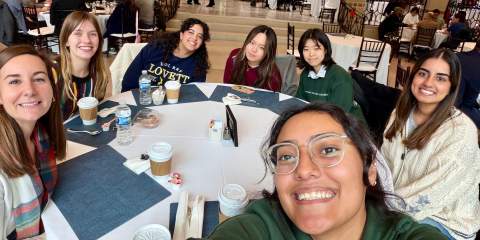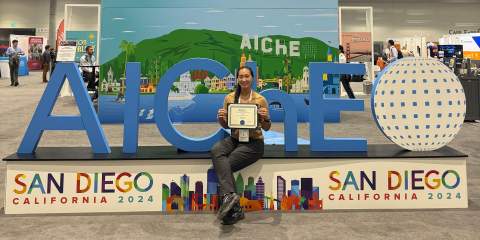Bonjour! My name is Alysa, and I’m a senior studying Philosophy and English with a concentration in Creative Writing. As an only child with a very active imagination, I spent my childhood immersed in books, aimlessly consuming anything and everything placed in front of me. My freshman year of high school, I encountered the first text that ever gave me pause: Albert Camus’ “The Myth of Sisyphus.” Suspended between fascination and confusion, I spent days piecing together the dense prose, trying to figure out the absurd philosophical puzzle before my eyes. It was then that my love of French philosophy and literature began.
Fast forward seven years. After seven years of French classes, I enrolled in my first literary translation course, ready to blend my love of philosophy and creative writing. Returning to the text that started it all, I spent weeks translating the final two paragraphs of “The Myth of Sisyphus,” sentence by sentence, word by word, attempting to infuse my English translation with the same sense of mystery and wonder I could now fully appreciate in the original French.
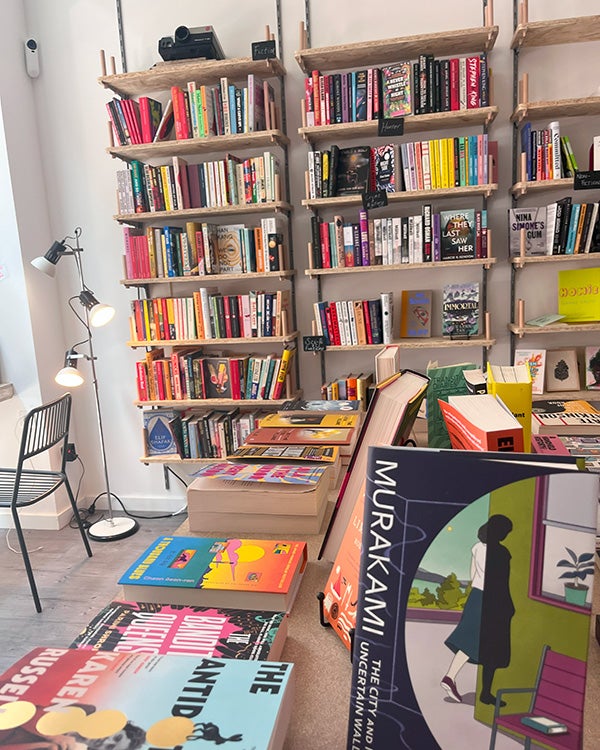
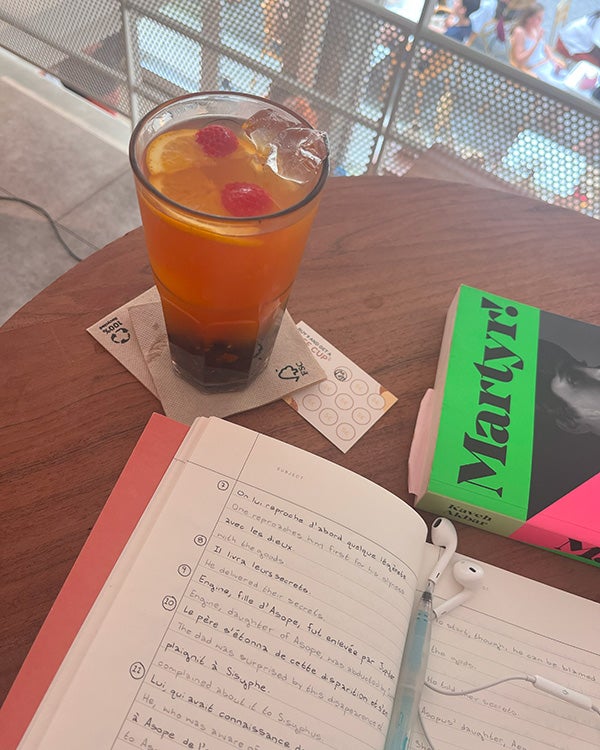
As the course neared its end, I knew I wanted to continue working on my translation outside the classroom. I eagerly applied to the Minter and Bull Fellowships – offered by the English and French Departments respectively – to seek funding to finish my translation and further my language skills through a study abroad program in Grenoble, France. Between both awards, I received $9,500, making my dream of studying abroad possible. And so, with my translation journal and French-to-English dictionary in hand, I packed my bags and headed to Europe.
Through my program, I was placed with a native French family and enrolled in courses at the beautiful Université Grenoble Alpes. Unsurprisingly, what I thought would be a primarily intellectual experience turned into a profoundly emotional one. Bonded through mutual confusion and pronunciation hardships, my fellow students and I quickly became close friends.
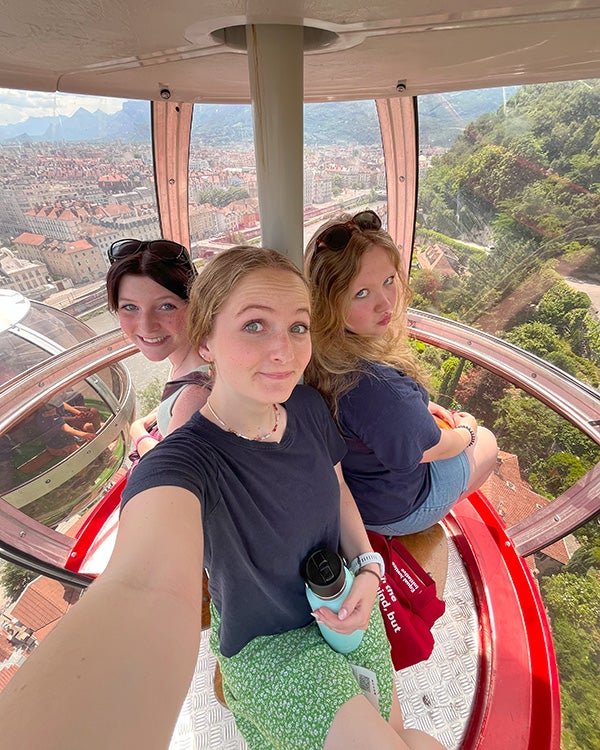
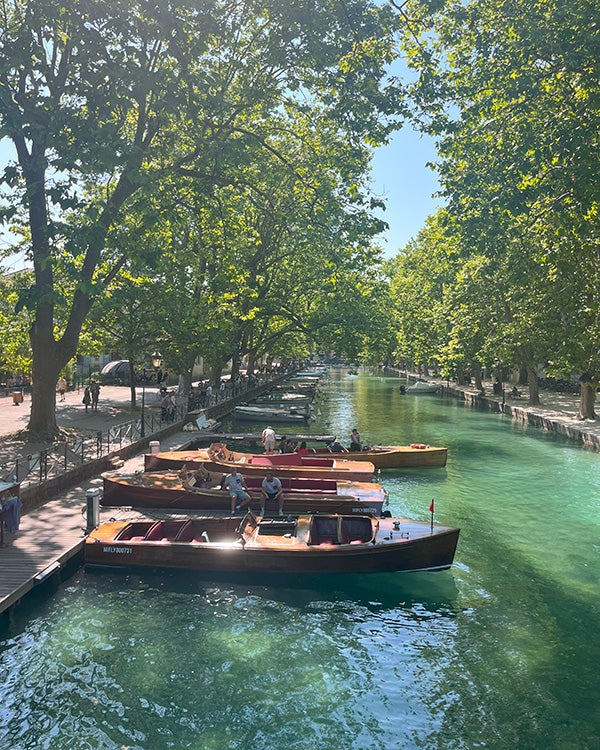
On a given day, I would head to the université in the morning for my French course, which was mostly dedicated to grammar, listening fluency and speaking exercises. In the afternoon, I'd head to a cute cafe in Grenoble to work on my translation independently. Translating is a tedious process, especially for someone not yet fluent, so I aimed to complete about three to four lines per session. First, I'd translate directly from the French into a rough English translation, or a "trot." Then, I'd re-work the "trot" into something more musical and natural sounding, while still trying my best to preserve the integrity of the text. This was done independently while I was in France, but now that I'm back in Houston, I've been revising my draft with Dr. Sainte-Claire (French Department) and Prof. Morín (English Department). When I was not completing translation work, I hung out with my new friends and host family as much as possible to soak up the culture and practice my oral French.
During my final weekend in France, I, alongside my new friends-turned-travel buddies, ventured into Turin, Italy, the beautiful capital of northern Italy with the best chocolate gelato of my life. Meanwhile, my host mom, her nine-year old son and their dog Nova put the “home” in homestay, bringing me along on their trips to the French countryside, inviting me to watch the Paris versus Milan Championship Game with the neighborhood kids and cooking delicious French meals together each night.
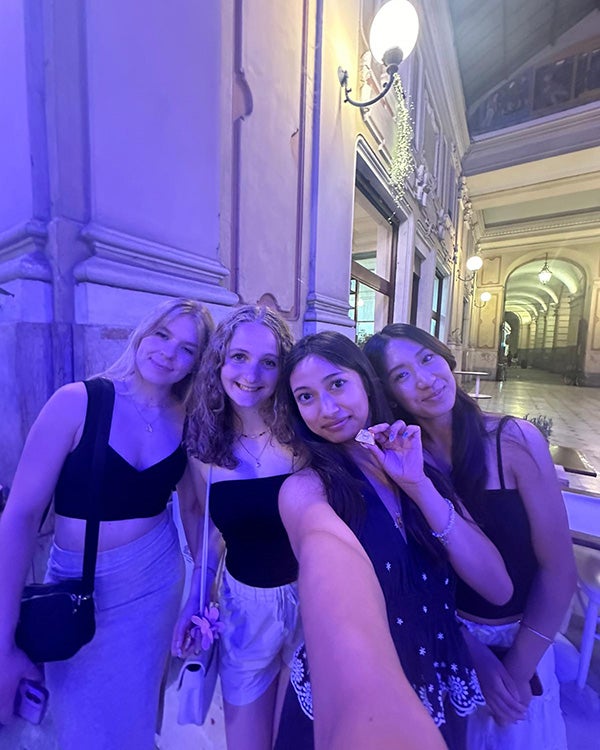
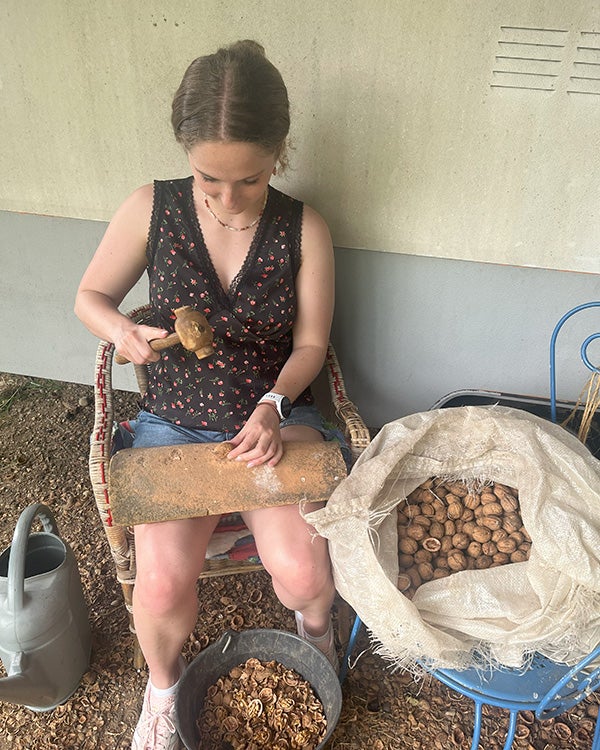
You often hear that studying abroad is transformative. It might sound cliché, but after living, learning and writing in France for four weeks, I can’t help but agree. My time abroad not only solidified my desire to pursue a minor in French, but also forced me to recognize that I am more capable and adaptable than I originally thought. I am incredibly grateful for the English and French Departments, who continue to support humanities students like myself looking to change the world one story at a time. Merci pour tout!
-Alysa, Duncan ‘26 (Published on 10/9/2025)
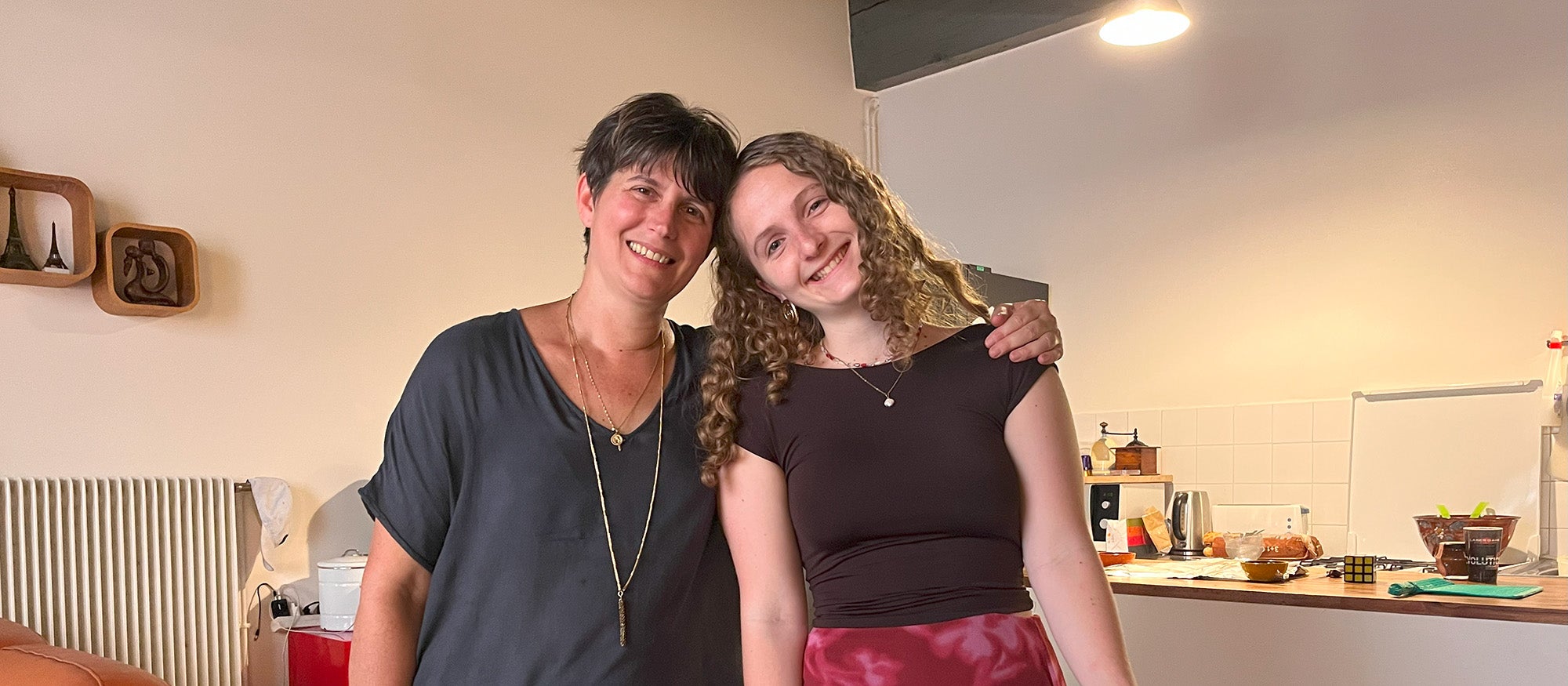
Keep Exploring
As a senior Mechanical Engineering student at Rice with three internships under her belt, Claire, Martel '26, has both the skills and confidence to succeed and conquer the corporate world. But her path wasn’t always easy! Discover how resources at Rice helped shape her journey as a future mechanical engineer.
Landing a research position doesn't have to be a cutthroat competition! From Google Forms to sheep brain dissection, explore how Jessie, Duncan '28, navigated Rice’s limitless opportunities to secure hands-on experience in an I/O Psychology lab.
For Aoife, Wiess ‘27, being an engineering major at Rice means endless opportunities. Explore how her involvement in the American Institute of Chemical Engineers chapter at Rice has shaped her journey!
Helpful Links
713-348-7423
admission@rice.edu
M-F 8:30 a.m. to 5 p.m. CT

